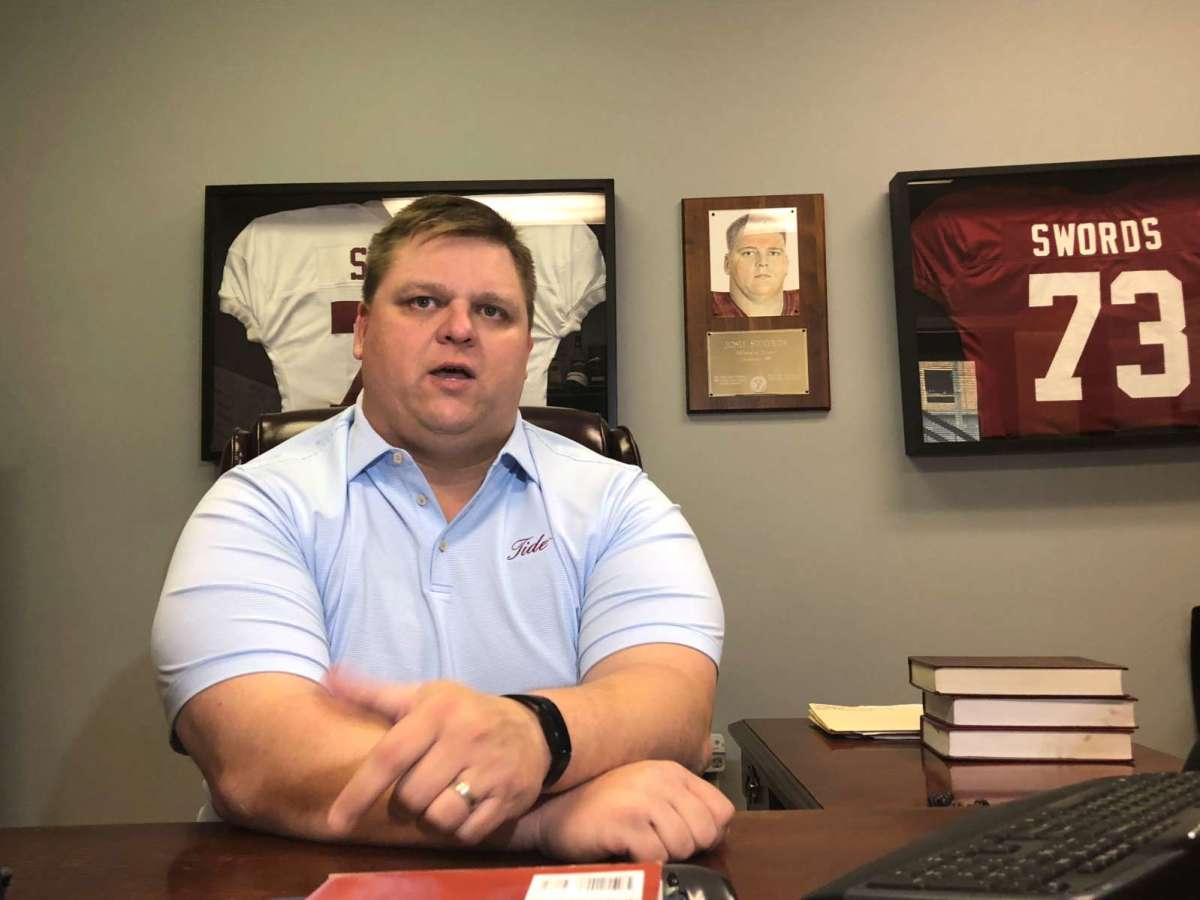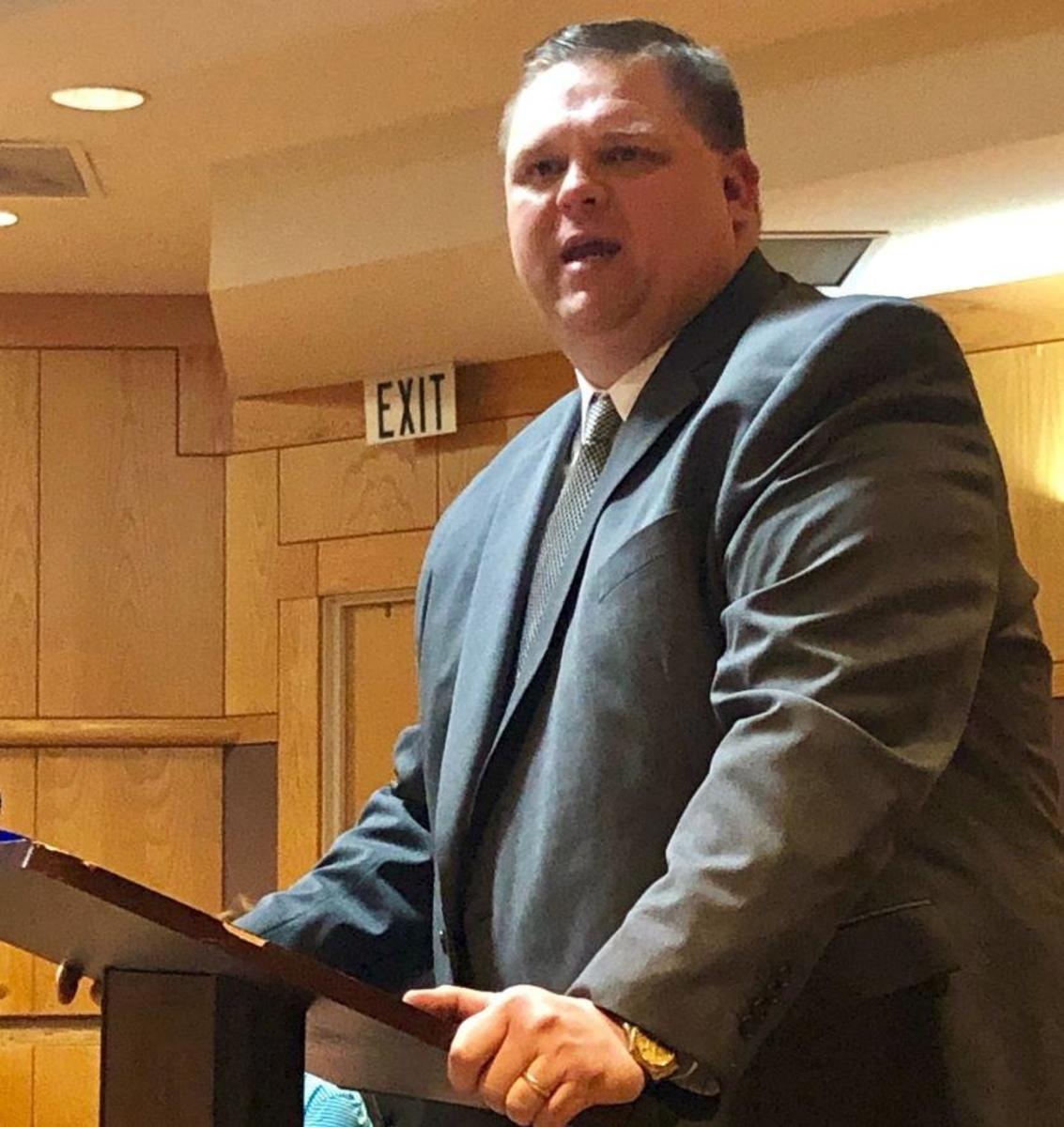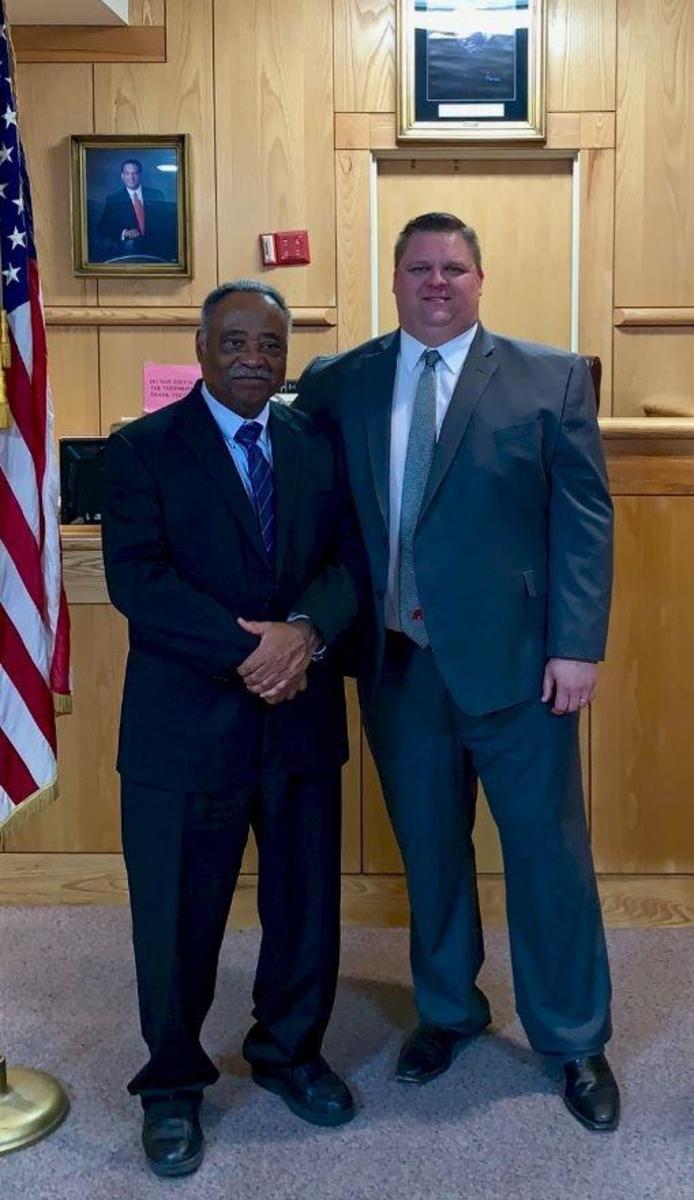Former Alabama Lineman Josh Swords Details Fight with COVID-19
When you look at former University of Alabama offensive lineman Josh Swords, the first thing you might think is ‘Wow, that’s a tough guy.’
Towering at 6-foot-3 and weighing in at 375 pounds, Swords fits the description. Having played football for the Crimson Tide from 1994-1998, Swords has seen many a fight on the gridiron in Bryant-Denny Stadium.
However, as he explained, nothing could have prepared him for his latest and greatest fight: COVID-19.
“Tough guys, you’ll always hear them say ‘Man I can make it through anything in 24 hours,’” Swords said. “Well, something like this, especially with what we know, you’re talking a long period of time. You’re not talking 24 hours. You’re talking 24 hours a day for 14 days straight.”

Since the beginning of the pandemic, Swords and his family had practiced their due diligence and had maintained a close, COVID-free circle in order to reduce the spread. Being an attorney, Swords was still forced to go to work, but wore his mask even when not mandatory and used hand sanitizer in the courtroom to reduce his risk.
“I’m pretty social in Tuscaloosa with all of the things that I do,” Swords said. “But we had a pretty good COVID circle. I have a friend that has a son who has diabetes and Down syndrome there in my neighborhood, so we kinda had a pact that we weren’t going to bring a bunch of crazy people in and we weren’t going to be crazy amongst each other and it operated real well for two-and-a-half or so months.”
In early June, Swords travelled to Guntersville, Ala., to visit his mother and father. His father had just been released from rehabilitation following complications from heart surgery, and with his mother suffering what at the time was believed to be a stomach bug, he stopped by for a 24-hour period on a weekend to assist them around the house.
The following Monday, Swords received a call from his sister saying that his mother had tested positive for the coronavirus, followed by another call that evening saying that his father had also tested positive.
To ensure the safety of his family, Swords went and had a COVID test done almost immediately.
“I went and took a test Tuesday morning,” Swords said. “It took a while to get the results back. I could actually start feeling the aches and inflammation and stuff coming on late in the day, sure of course my test came back Thursday morning negative, and I said ‘No I ain’t negative,’ so I went back and took another test. This time they double-barreled me up the nose on both sides and that one came back positive. I had kind of already known as of Wednesday June 17 that I had gotten it from being home with my mom and dad.”
For the next two weeks, Swords quarantined himself in his bedroom, watching TV and playing on his Playstation to pass the time. However, what might sound like a decent stay-at-home vacation for many became excruciating for Swords.
Swords never showed any respiratory symptoms commonly associated with the coronavirus, but exhibited many of the others that make the virus so difficult to deal with.
His worst symptoms? Inflammation and headaches.
“I never really have headaches or things like that and to feel the pressure in your skull it’s just – it became unbearable,” Swords said. “By day six I hadn’t really slept just because of the pain. You try to sleep in the bed and then your shoulders – you know, from playing football and being an offensive lineman most of the impact that I took over the years – and if you’re laying on one side the inflammation was so bad it would just wake me up and then the other side and then of course everything in the back.”

After six days, Swords reached out to his doctor to see if he could do something about the pain. He was given some pain medication to numb the symptoms, and while the virus wasn’t gone, he was finally able to get some consistent sleep.
That being said, the inflammation was still a constant struggle for Swords to deal with.
“The toughest stuff was the inflammation,” Swords said. “Head swells, I could feel knots on the back of my head – every bone in my body, all of my football injuries, the arthritis, the shoulders, the knees, the ankles – everything it felt like it was just getting attacked, swollen and inflamed. Even my back. The inflammation was just wild. I’m talking about inside my hips and the outside of my hips it was so bad to sit in a chair and if you sat still you could feel the pain, so I would sit there and bounce my legs and shake my legs so I wouldn’t feel the pain and try to get away from it. I just couldn’t get away from it.”
After his 14-day quarantine, Swords returned to his law practice following Fourth of July weekend. Since that time, he has been even more cautious of wearing his mask and frequently sanitizing and washing his hands. Not for himself, but for others around him.
“If it’s not enough to wear a mask for yourself, do it for your mom or your dad or do it for other people that aren’t as strong as you are or have as good of a health system,” Swords said. “People say ‘Yeah I already had it’ or ‘Yeah I’m asymptomatic, I don’t need it’ but talking as a society, if it’s all about yourself then we’re not going to succeed no matter what we’re fighting.
“You gotta have a sense of sacrifice, you gotta have a sense of compassion for others and not just yourself. Even if you think you’re being oppressed by the government, think about the grandmas. Put aside your own beliefs for a second and try to take care of someone else.”
While it might be tempting to go help those in need, Swords reiterates that practicing personal responsibility is what is needed most during this time. Soon after Swords and his parents contracted the virus, his mother was placed on a ventilator. After 15 days, she was finally cleared to return home.
The desire to help others – especially family – is almost overwhelming, but Swords says that it is best to maintain one’s own personal health in order to ensure the health of those around you.
“It starts with responsibility,” Swords said. “Unfortunately, it almost comes to a point of sacrifice. My desire to go home and help my mom, help my dad, […] that desire to be there, that desire to help is what put me at risk and put my family at risk. You gotta be disciplined and you gotta be responsible. That’s the only way to really protect yourself. If you open yourself up even for 24 hours or even just for an hour or so in the wrong place or a place that you’re not familiar with, you’re putting yourself at risk.”
Having played football back in the 1990s, Swords has seen quite a bit of physical adversity in his time. However, while he explained that football did prepare him for some of the aspects of the virus, it still took its toll.
“Any time you’re competing in football, you got a clock up there,” Swords said. “Whether it’s a play or whether it’s a game, you know there’s a clock. Football in and of itself is a fight, it’s a struggle, it’s a mental, physical, and sometimes even spiritual kind of battle. There’s always a time when the whistle sounds and you get to walk off the field and get in the showers and be with your teammates or even with the guys you played against. The thing about this virus is there is no whistle. You got 14 days of it at a minimum. For some people it becomes life or death.”
Today, Swords continues to fight the good fight by raising awareness for the virus. He still keeps to his tight circle, but practices better discipline when he hears of others that might be sick.

The loss of time is what Swords regrets most. Between his wife and family along with his law practice, Swords missed out on much-needed time both at home and at the office for over half a month.
“You hear stories about how ‘You’d better bring your lunchbox and a dry t-shirt because it’s going to be a long day,’” Swords said. “Well, this one makes it long weeks. That’s where the hardest thing over competing on the field and competing against COVID is the aspect of time. Not just time and fighting it but how it changes you afterwards.
“Even with the symptoms, the loss of time is absolutely a monster.”
Swords reiterated that in order to combat the spread, one must put aside their personal beliefs and stand up for what’s best for everyone else, not just themselves.
Until more knowledge is revealed by research and time, Swords says that it will be difficult to move past the virus that sidelined him for weeks.
“I don’t think you ever really get over COVID,” Swords said. “At least right now because you don’t really understand the fight that you were in. When you’re on the football field, a lot of times you’ve done it so long we know what we’re doing. But with COVID, you don’t know what the hell – hell, even the doctors don’t know what’s coming so how are you supposed to know what’s coming?
“It’s almost like playing 11-on-14 because you don’t understand it. There’s no prep, all you can do is hold on and fight through it.”
